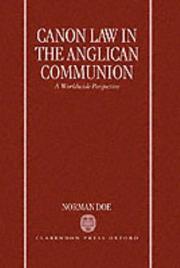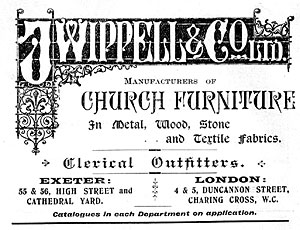I blog it now because it continues to be relevant: the terms of signing the Covenant seen from Singapore are not the terms seen from where I sit.
 |
| Michael Burrows, Bishop of Cashel and Ossory, and promoter of the Covenant in Ireland |
In May the Church of Ireland "subscribed" to the Covenant.
In doing so the Irish intended to subordinate the Covenant to the Church in Ireland; they were not willing to subordinate the Church to the Covenant (Press Release). Were they conning themselves? Mark Harris pointed out that they didn't really have the option: the only choice on the table was - take it or leave it.
But was something else going on? Did the Irish (or, at least, those in the know) believe that once the Covenant was in place all that would happen would be another round of negotiations?
To put it another way: what do we get if we get the Covenant?
Here the Church of South East Asia (wiki) has been very helpful.
A history of the Covenant
Their Preamble to the Letter of Accession (also May 2011) set out a history of how the Covenant was created. It stresses the significance of conservative Provinces in the creation of the document dating back to the Second South-to-South Encounter Kuala Lumpur Statement in 1997.
I find the historical narrative largely persuasive when seen through conservative glasses, The story is predicated on the "unscriptural practices in some parts of the Church" and the providential way the 'crisis' enabled the diverse churches of the global south to create a shared identity and structures of consultation
It's not the whole story. (1) It omits contributions from England and other western sources. (2) The Archbishop of Canterbury is mentioned twice (outside quotations): to restate an instruction given to him by the Primates and, second, to disapprove a decision he made. It would seem that the future of Covenanted Anglicanism does not accord primacy to the Archbishop, his heirs and successors. (3) It ignores the listening process that was also agreed at Lambeth 1998. (4) It also leaves the impression that 'border crossing' followed, rather than preceded, the consecration of Bishop Gene Robinson.
 |
| (l-r) Bishop Albert Vun, Diocese of Sabah) Bishop John Chew, Diocese of Singapore Bishop Bolly Lapok, Diocese of Kiching Bishop Ng Moon Heng, Diocese of West Malaysia |
The terms of accession
The Preamble "also outlines the raison d'être for the Church of the Province of South East Asia’s agreement to sign the Anglican Communion Covenant.":Churches that accede to the Anglican Communion Covenant need to subject their common life to the reforming and transforming work of the Holy Spirit, so that the Communion may be built up until all “reach unity in the faith and in the knowledge of the Son of God and become mature, attaining to the whole measure of the fullness of Christ” (Eph 4: 13). The Anglican Communion should adopt more uniform processes in the election and appointment of bishops, to ensure that such processes are not held hostage to local politics and to parochial understandings of the episcopal office.For the Province of South East Asia, therefore, it is perfectly clear that the Covenant does indeed subordinate provinces to its provisions. Local church order must be changed to fit the programme.
Furthermore:
our accession to the Anglican Communion Covenant is based on the following understanding:Thus they sign the Covenant with one pen and with another write: everyone else must meet the demands of South East Asia.
(a) that those who accede to the Anglican Communion Covenant will unequivocally abide by Lambeth 1998 Resolution 1.10 in its spirit and intent;
(b) that those Provinces and Dioceses whose actions violate Lambeth Resolution 1.10 as well as subsequent Primates Communiqué statements that have placed a moratorium on the consecration of gay bishops and the authorization and implementation of public rites for the blessing of same sex unions, are expected to rescind their actions, and bring their public doctrine and practice in line with Lambeth 1.10, before acceding to the Anglican Communion Covenant; and
(c) that Churches that accede to the Anglican Communion Covenant should bear authentic witness to the orthodox faith by an unequivocal commitment to the standards of moral and ethical holiness as set by Biblical norms in all aspects of their communal life. (Mt 19:4-6; Rom 1:21-32; 1 Cor 6:9-11; Gal 5:16-26; Eph 5:3-14; Col 3:5-14; 1 Thess 4:3-12; 2 Tim 3:1-5; Heb 13:1-5; 1 Pet 4:1-11; 2 Pet 2:13-22; Jude v18-21; Rev 18:1-8).
(d) that the Primates Meeting, being responsible for Faith and Order, should be the body to oversee the Anglican Communion Covenant in its implementation (Anglican Communion Covenant Section 3.1.4.IV and South-to-South Encounter, Fourth Trumpet, 21).
Martin Reynolds (last comment at TA) also noted that, as part of the National Council of Churches of Singapore, the Anglican Church sought to criminalise lesbianism for the first time in the country's history and to sustain harsh punishments for gay men. There is nothing irenic in this Provinces' Covenant.
So what does it mean to sign the Covenant?
Clearly the Church of Ireland either signed a different Covenant, or it must withdraw its decision if these are the terms, or it expects the Covenant to be merely a staging post to further negotiations.
What would the Church of England be signing up to if it voted in favour?
What is the point of a treaty if we all think we're signing up to different things?


























